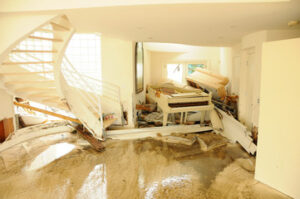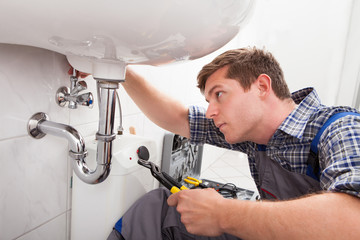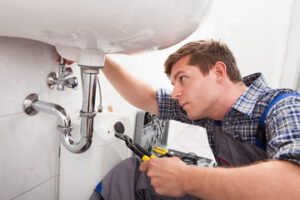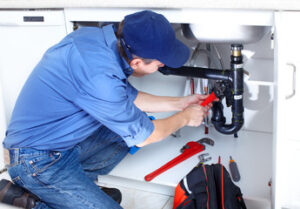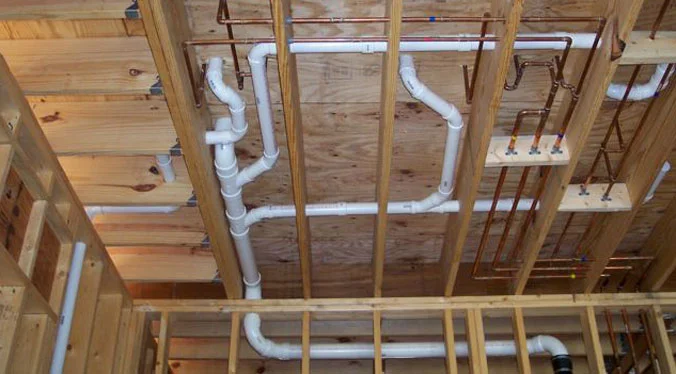Leak Detection Services Los Angeles is essential for homes and businesses. Conducting leak detection tests can help reduce water wastage and prevent more significant problems later.
Unexplained wet spots on walls or floors are warning signs that you may leak. It’s important to fix these leaks quickly so they don’t cause any damage.

Leak detection equipment is essential for many industrial processes, such as manufacturing, mining, oil refining, gas processing and more. Leaks from hoses, pipes and other equipment can cause significant damage in a short amount of time. Leak detection systems help to mitigate these problems by identifying the location of leaks quickly, and often before the issue is even visible to the naked eye.
There are many different types of leak detection systems available, each with its own unique benefits and uses. In general, all of these devices seek to detect and signal when a liquid or gas is escaping from a pipe, vessel or other container. They are often used in conjunction with other forms of monitoring, such as temperature or vibration sensors, to alert operators when the issue is present.
Some of the most common forms of leak detection equipment are sonic leak detectors, which use sophisticated microphones to pick up the sound of water escaping from pipes. The noise is distinct and can be heard as a hissing or whooshing sound. This type of equipment is very effective at pinpointing the site of a leak in a very short period of time, reducing labor costs and saving valuable resources.
Ground Penetrating Radar (GPR) is another effective tool for detecting leaks in underground pipes. By transmitting radar energy into the ground and analyzing the strength and time delay of reverberations, this technology is capable of finding even the smallest leaks, and can work in a wide variety of conditions. It can also be used to scan for other issues, such as structural anomalies or underground obstructions, and can work both indoors and outdoors.
Another useful form of leak detection equipment is a rope or cable-style sensor, which uses sensors that extend from a cable and are attached to the surface of a pipe. When the sensor is contacted by water, it completes an electrical circuit that can then activate a light or trigger an alarm. The sensor can also be used to track the location of a leak in real-time, using GPS technology.
Pipes convey potable water, gas, and other liquids throughout residential, commercial, and industrial structures. These pipes can be prone to pinhole leaks, especially in older homes with galvanized metal plumbing. These small leaks can result in jaw-dropping damage to surrounding structures and lead to skyrocketing repair costs. Thankfully, there are a variety of technologies that can be used to detect the presence and location of pipeline leaks.
Acoustic leak detection systems are able to listen for the frequency and vibrations emitted by the leaking pipe. These sensors may be mobile and can be run along the length of the pipeline segment to identify leaks, or they can be stationary. Noise loggers are another option for detecting leaks; these can be either mobile or stationary, and can transmit data via radio or manually be downloaded into a laptop computer.
Other methods for detecting leaks in pipes include Ground Penetrating Radar (GPR) and Time Delay Reflectometry (TDR). GPR works by transmitting radar energy into the ground and monitoring the strength and timing of any reverberations that occur. The resulting images provide a detailed map of the underground surface, including any anomalies that may indicate the presence of a leak. This method is effective in both solid and liquid-filled pipes, as well as in wetland and densely vegetated areas.
The acoustic sensor technology that is used in leak detection can also be adapted to detect other types of signals, such as electromagnetic or magnetic. This can be useful in determining the source of leaks in difficult-to-reach areas, such as under buildings or buried infrastructure. These methods are not generally considered to be as reliable or accurate as acoustic or ultrasound-based leak detection, though.
Water leaks are a major concern for water service providers, as they can lead to significant losses in water supply. As a result, utilities are continually seeking ways to improve their water resilience by reducing loss through leaks and other water system disruptions. These improvements can be as simple as implementing leak detection programs to minimize water loss. For example, acoustic leak detection can be used to identify problems such as faulty valves, missing sleeve connections, or cracked pipe sections. The data from these tests can then be used to determine the most effective course of action for water system repairs and rehabilitation.
Water leak detection services help business owners and property managers to locate the source of water leaks and ensure that these are fixed in a timely manner. These services are especially important because of the huge damage that can result from undetected water leaks. They can waste money on water bills, cause structural damage to buildings, encourage unwanted biological growth and, in the worst cases, lead to disasters like floods and sewage backups.
Water leak detectors can be installed at the point of entry to a building or at each plumbing fixture and appliance. This allows the system to shut off water flow when there is a leak, protecting the area from damage and saving money on repair costs.
When a water leak detection sensor detects an unusual pattern in the water usage, it sends an alert to the user and automatically shuts off the main water supply at the leaking point. This is a simple and effective way to protect the home or building from costly and inconvenient water damage.
Some systems use sensors that are triggered by the presence of moisture in the air. These are particularly useful for detecting hidden leaks in walls, ceilings, floors and other hard-to-reach areas. The sensors detect moisture in the air by sensing changes in pressure and can trigger an alarm when a problem is detected.
Other types of water leak detection devices include those that use sound to pinpoint the source of a leak. These systems are commonly used in data centres, plant rooms and office environments. They can also be used in hospitals, factories and other commercial facilities. Typically, these systems consist of a panel, which can be either a physical button or touch screen and all cabling from the field. The panel can be connected to a Building Management System (BMS) or an alarm system and provide data back to the operator.
GPRS’s SIM trained technicians use cutting-edge technology and equipment to carry out a comprehensive survey of pipes, pumps and valves in your property or premises. They are able to identify any problems with your pipes and recommend the most cost-effective solution. Once the survey is complete, a report, including photographs and the location of any issues found, will be provided to the customer.
Commercial property owners and managers can rely on the sophisticated, cutting-edge equipment that’s available for detecting and pinpointing leaks throughout their buildings. This technology allows them to take a proactive approach to one of the most common and expensive problems that impact their facilities.
Leak detection systems are capable of identifying many different kinds of leaks. For instance, they can detect leaking water from toilets and other plumbing fixtures. This can help prevent water waste and soaring utility bills, as well as the damage that can result from the excessive water use.
They can also identify and respond to a variety of other leaks, such as those caused by corroded pipes or aging sewer lines. The systems can be programmed to turn off water flow once they detect the presence of such leaks. This can prevent costly repairs and minimize the risk of flooding and structural damage.
Additionally, these devices can also identify if any of the pipes are in danger of freezing. This is a common issue in colder climates, and it can result in pipes cracking and bursting. The system can automatically sever the water connection until temperatures rise or an operator manually assesses the situation and reactivates the water supply.
Many leaks go unnoticed until they cause significant damage, costing property owners and managers time and money to repair. Fortunately, there are several warning signs that can indicate a leaking problem: skyrocketing utility bills, discolored walls and ceilings, stains on the floors, musty odors, and mold and mildew growth.
The most valuable benefit of a leak detection system is its ability to protect a facility from water hazards and damage. By catching leaks before they become serious, these systems can save thousands of dollars in costs and damages and minimize the need for expensive repairs. In addition, they can reduce the environmental impact of a property and promote eco-conscious practices. By reducing wasted water, they can align a property with environmentally sustainable principles and help protect the investment of the owner or manager.

